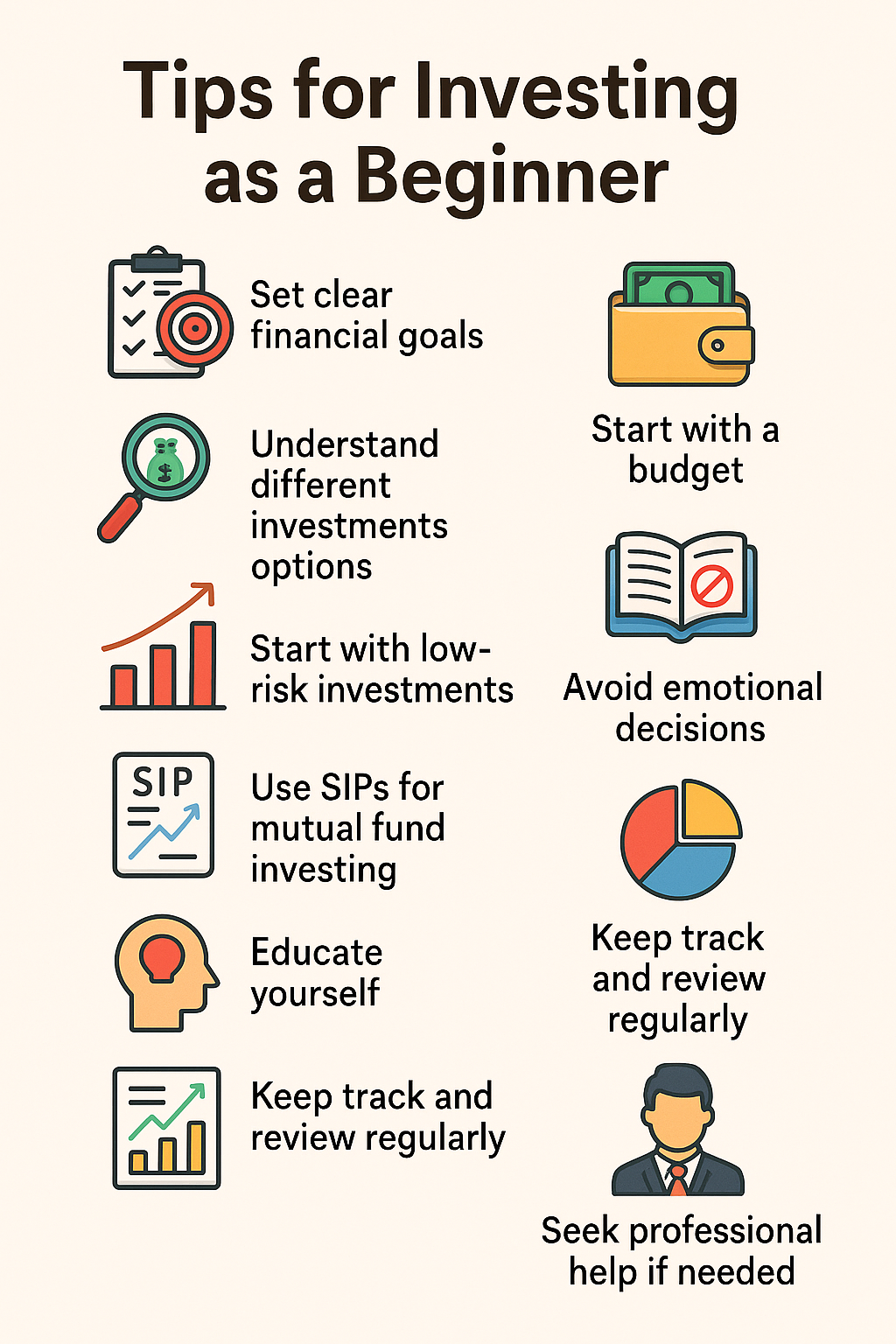Investing is one of the most effective ways to build wealth and secure your financial future. If you're a beginner, the idea of investing might seem overwhelming—but with the right knowledge and approach, you can start confidently and wisely. Here are some practical tips to help you begin your investment journey:
1. Set Clear Financial Goals
Before investing, define your financial goals. Are you saving for a house, retirement, travel, or an emergency fund? Setting goals helps you choose the right investment strategies and timelines.
2. Start with a Budget
Ensure your basic expenses and emergency savings (3–6 months of expenses) are covered. Once that’s set, allocate a portion of your income toward investments—start small and increase gradually as your income grows.
3. Understand Different Investment Options
Familiarize yourself with popular investment avenues:
Stocks – Ownership in a company; high risk, high return.
Mutual Funds – Professionally managed funds; good for diversification.
ETFs (Exchange-Traded Funds) – Similar to mutual funds but traded like stocks.
Fixed Deposits & Bonds – Lower risk, stable returns.
Real Estate – Long-term and capital-intensive investment.
Each has its own risk, return, and liquidity characteristics.
4. Start with Low-Risk Investments
As a beginner, consider starting with lower-risk options like index funds, mutual funds, or government bonds. These are less volatile and provide good exposure to the market with minimal effort.
5. Use SIPs for Mutual Fund Investing
Systematic Investment Plans (SIPs) allow you to invest a fixed amount monthly into mutual funds. It’s a disciplined and beginner-friendly way to enter the market and benefit from rupee cost averaging.
6. Educate Yourself
Knowledge is your best investment tool. Read books, watch videos, and follow finance blogs and podcasts. Recommended beginner books include:
The Intelligent Investor by Benjamin Graham
Rich Dad Poor Dad by Robert Kiyosaki
The Little Book of Common Sense Investing by John C. Bogle
7. Avoid Emotional Decisions
Investing requires patience. Don’t panic when markets fall or get greedy when they rise. Stick to your plan and think long-term to avoid impulsive, emotion-driven decisions.
8. Diversify Your Portfolio
Never put all your money in one type of investment. Spread your funds across different asset classes (stocks, bonds, gold, etc.) to reduce risk and increase potential returns.
9. Keep Track and Review Regularly
Monitor your investments periodically. Rebalance your portfolio if needed and stay updated with financial news. But avoid checking too often, as it may lead to anxiety or rash decisions.
10. Seek Professional Help If Needed
If you're unsure, consult a certified financial advisor. They can help you build a personalized investment strategy based on your goals and risk tolerance.
Conclusion
Investing isn’t about getting rich overnight—it’s about making smart, consistent decisions that pay off over time. With the right mindset, knowledge, and discipline, you can grow your wealth and achieve financial freedom. Start today—the earlier, the better!










